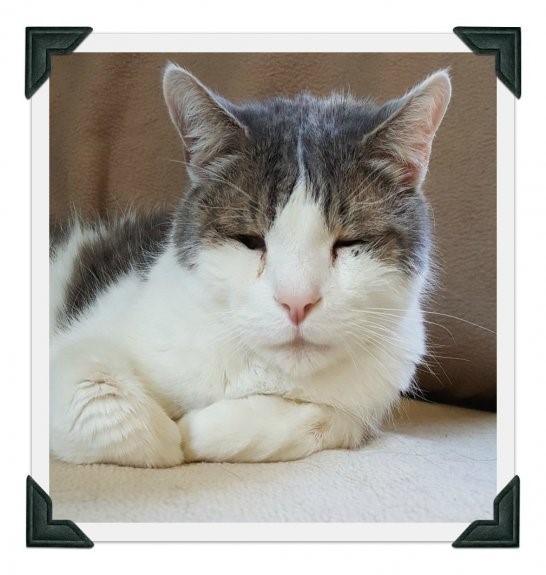 Often when people come to the shelter to adopt, they are looking for a puppy or a kitten, or an animal withing its first few years of life. Berkshire Humane Society receives weekly calls and emails asking about babies, and when we do have puppies and kittens, they are usually adopted within days, or even hours. This can leave a majority of older animals waiting longer for their forever homes, like Petey who is featured above.
Often when people come to the shelter to adopt, they are looking for a puppy or a kitten, or an animal withing its first few years of life. Berkshire Humane Society receives weekly calls and emails asking about babies, and when we do have puppies and kittens, they are usually adopted within days, or even hours. This can leave a majority of older animals waiting longer for their forever homes, like Petey who is featured above.
There is no time limit on the length of stay a healthy, adoptable animal may remain at Berkshire Humane Society. Some of our residents have been with us for months or even longer than a year. While this is good news for these animals, the shelter is not a home, and it can be hard to see so many wonderful pets overlooked.
We do adopt out senior animals – in fact, our rates are very good – but we’d love to see our older animals adopted more quickly. Sometimes people come looking for an older pet because they already understand the inherent benefits. Others fall in love and look past the age to later realize the wisdom of their choice. We’re lucky too because we have the Danny Boy Adoption Fund on our side. This wonderful organization underwrites the adoption fee for selected senior pets.
So what are the benefits of adopting a senior animal? Here are just a few of the positives to consider…
Senior does not mean old.
Senior classification begins at 7 years of age. Most animals live well past 12 years, giving people many long years with their furry companion. All pets are long term commitments, but when you adopt a baby animal, you are hopefully committing to 10-15+ years of pet ownership. Make sure you’re up to the task! If not, an older animal may be better suited to your family. Consider how many years until children out-grow or become too busy for a pet, or when they might leave for college. If the pet is to provide company for an elderly family member, consider the length of time they may want to commit to that pet’s care.
Senior pets often have more predictable personalities.
Unlike a kitten or a puppy, who will be in development for 1 to 2 years, older pets have already grown into who they are. While animals definitely open up in a home and show more of their true selves when they are comfortable, you can still trust that much of what you see at the shelter will be what you see at home. If a cat is social and cuddly, then that cat is likely to thrive on attention. If a dog is independent and just wants to hang out in the same room, this will likely be its go-to behavior at home. Consider what you really want in a pet and look for the animal that can give you that. Babies are cute, but just like people, they grow into their own interests and habits, and those might not align with your dream pet.
Seniors are typically more relaxed.
Senior animals do not necessarily have less energy, but they tend to use up their energy more quickly and spend more time relaxing. Usually they have outgrown or already been trained out of some – if not all – undesirable behavior like excessive chewing, digging in the yard, and barking. Behaviors that are normal for an energetic puppy can be less prevalent in senior dogs. They are often more reliably house-trained too. Of course every animal and their situation is unique, so find out why they were surrendered. Many older pets come to the shelter for reasons other than behavior, but that’s the number one reason puppies are surrendered! So if your rugs and furniture matter a lot to you, consider an older pet and you’re likely to have less mess.
We hear from past adopters frequently, and many have taken home an older animal. Some say they will only adopt seniors. They love giving a home to an animal in need, and providing the best possible quality of life for the remainder of their years. What a wonderful commitment. Next time you are in the market to adopt, consider a senior.
PS – Did you know that November is Adopt a Senior Pet month? It’s the perfect time to consider an older pet!

